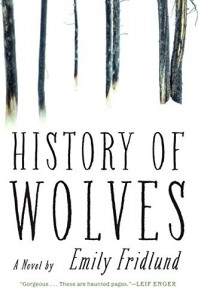 Published by Atlantic Monthly Press US/Weidenfeld & Nicolson UK
Published by Atlantic Monthly Press US/Weidenfeld & Nicolson UK
3 January/9 February 2016
Reviewed by Elsbeth Lindner
Coolly opaque yet aching with need, the heroine of Fridlund’s debut novel exists on the fringe of poor white territory in North Minnesota while remaining at one remove from it.
That character is Madeline Furston, also known as Linda, a teenager attuned to the woods where she lives, in hardscrabble circumstances, with two adults – ex communards who may or may not be her parents. There is habit in this household but little that would pass for family love, yet Linda’s heart is full of compassion – for the wildlife and kept dogs outdoors; for the few folk she knows, like troubled school mate Lily; and for the pale child Paul, a son of incomers with a summer home on the local lake, for whom she starts babysitting.
two adults – ex communards who may or may not be her parents. There is habit in this household but little that would pass for family love, yet Linda’s heart is full of compassion – for the wildlife and kept dogs outdoors; for the few folk she knows, like troubled school mate Lily; and for the pale child Paul, a son of incomers with a summer home on the local lake, for whom she starts babysitting.
Attracted to four-year-old Paul’s mother Patra, Linda is nevertheless suspicious of his father, Leo, and rightly so. Canny though in some senses she may be, Linda – unfamiliar with intimacy – can’t penetrate the mystery of this marriage. When she senses something awry, she is powerless to intervene.
A little like Eileen by Ottessa Moshfegh, Fridlund’s novel is a version of blue collar fiction, exploring life from the perspective of a social outsider, drawn to yet unfamiliar with middle-class mores. Linda is alive in the woods, canoeing the lakes, making a project about wolves. Her response to others is silent, reserved, detached, but unexpectedly empathetic as in the case of a teacher accused of child pornography. Searching for attachment, she fashions alliances, but simple redemptions are not for this story.
Fridlund’s tale is a somber yet lyrical coming-of-age exploration which considers the complex meaning of connection and responsibility. Startling in its avoidance of sentimentality, this is intriguing work from an exciting new talent.
